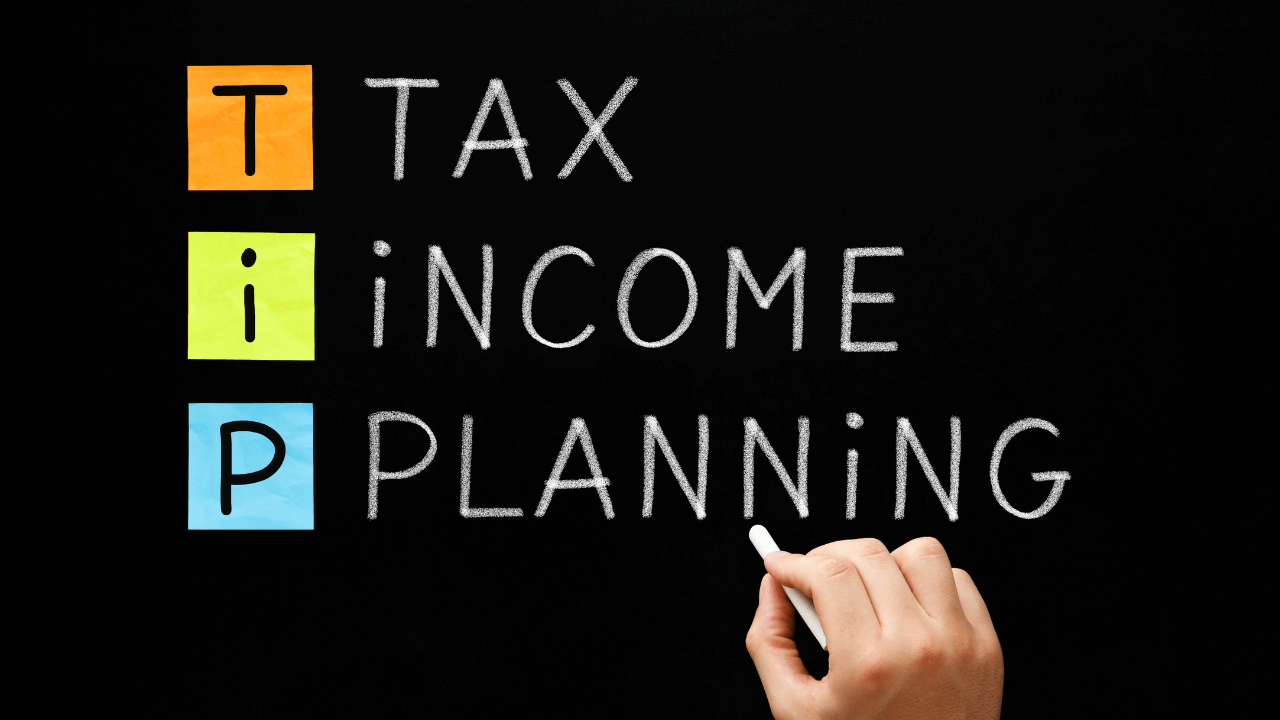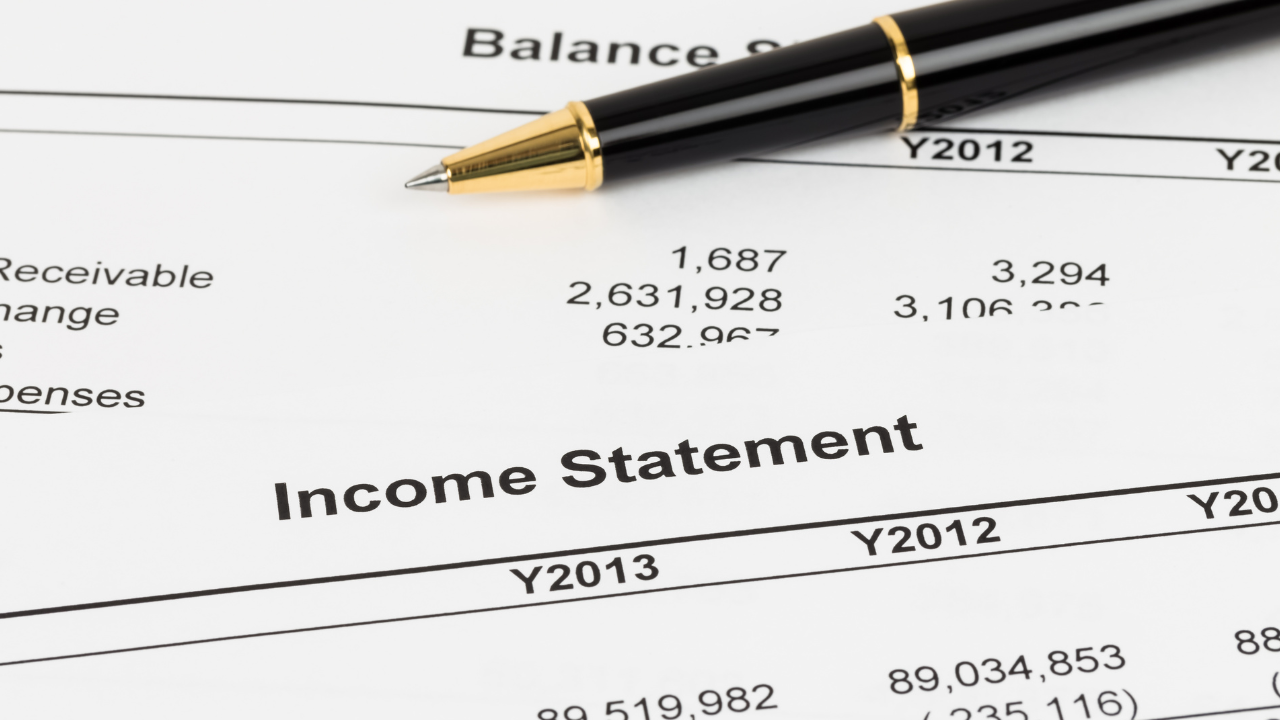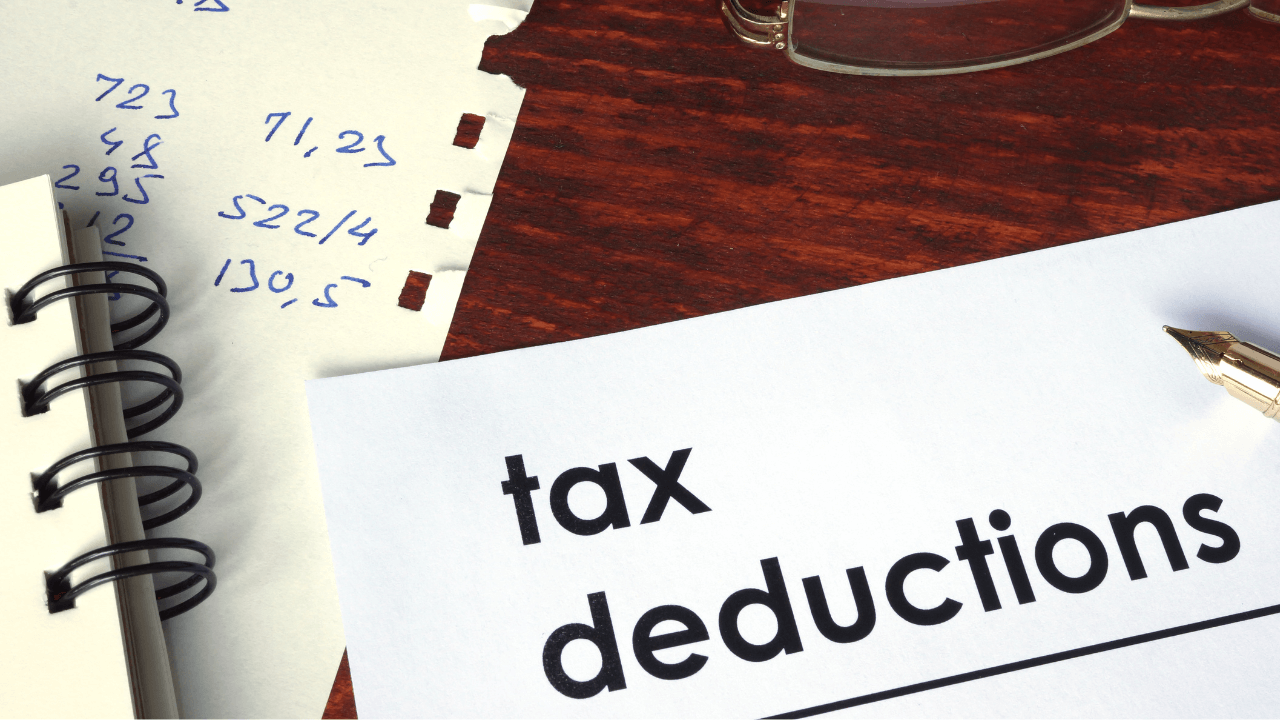Language:
The Ultimate Guide on Expert Tax Tips for Small Business Owners

Running a small business comes with the satisfaction of doing what excites you every day; right? But come along the nasty joy-busters like tax filings, compliances, documentation formalities, etc., that drag your focus from what you love doing the most!
However, here is a lesser-known fact – if you record your finances (inbound and outbound), and know how you can maximize your deductions, you are not going to hate the tax season.
But then again, finding all information in one place in easy-to-understand language is nothing short of hitting a jackpot.
So, here we are, ready with your jackpot – a complete guide to taxes for small business owners along with some expert tips to maximize your deductions, a.k.a savings.
Let’s dive in.
Your Tax Obligations as a Small Business Owner

To make tax filing easier, the first step is to familiarize yourself with the basics – what are the tax types, which business structure is the best for unlocking the best taxation benefits, and how does owning a business affect your personal taxes?
Below, we explain each one of them in detail.
Types of Business Taxes
The IRS has five categories of taxes for small business owners, and the type of your business determines how you pay them or which ones you pay.
Income Tax
All business owners except the ones with a partnership business structure have to file an annual income tax return. Businesses with a partnership business structure have to file an annual information return.
To pay the income tax, you have to fill and submit a specific tax form, which also varies depending on your business structure, and we cover them in the following sections.
Now, the government defines the federal income tax as a pay-as-you-go tax, which means your tax amount varies as per your annual earnings/income.
So, every employee has to pay the income tax from their salary and not paying it on time, or paying an incorrect/lesser amount can incur penalties alongside remission of the remaining amount. So, as a small business owner, you have to pay the tax based on the amount you draw as salary, and any other income that might call for estimated tax. For more detailed information, you can refer to IRS Publication 583.
Estimated Tax
You can pay taxes on your annual income either by withholding or estimated tax payments. If the amount of tax withheld from your annual income/pension is not enough, or if you receive earnings from interests, alimony, dividends, capital gains, self-employment income, prizes, and awards, you have to pay the estimated tax.
For small business owners, the estimated tax covers not only the income tax but taxes such as alternative minimum tax, self-employment tax, etc.
Inability or failure to pay enough withholding and estimated tax and late estimated tax payments can lead to penalties. You have to pay these penalties, even if you are eligible for tax refunds once the filing is done.
The estimated tax requirements vary for farmers, fishermen, and some specific higher-income taxpayers, the details for which are available in the IRS Publication 505, Tax Withholding and Estimated Tax.
Self-Employment Tax
Also called SE tax, it is a Social Security and Medicare tax that you have to pay as a contribution to your Social Security System coverage. This coverage encompasses various benefits, such as retirement, disability, hospital insurance, and survivor benefits.
As a rule of thumb, you have to pay SE tax and file Schedule SE (Form 1040 or 1040-SR) if any one of the following conditions applies to you:
- Your earnings from self-employment are equal to or above $400.
- If you work for a church/qualified church-controlled organization with exemption from Medicare and social security taxes, and get $108.28 or more as income from the employing organization.
Employment Taxes
If your small business has employees, you have to pay certain employment taxes via specific forms, as mentioned below:
- Federal income tax withholding
- Social Security and Medicare taxes
- Federal unemployment (FUTA) tax
Check the official IRS website for more detailed information on Employment Taxes for Small Businesses.
Excise Tax
Based on the type of your business operations, you have to pay the excise taxes via different forms for different categories. Below, we explain them one by one.
You have to pay excise taxes if you do any of the following as business activities:
- Receive payment for certain services
- Manufacture or sell certain products
- Use various kinds of equipment, facilities, or products.
- Operate certain kinds of businesses.
Here is a brief overview of the different tax forms and categories of taxes they are used for.
Form 720 is used for filing:
- Communications and air transportation taxes
- Environmental taxes
- Manufacturers taxes on the sale or use of a variety of different articles
- Fuel taxes
- Tax on the first retail sale of heavy trucks, trailers, and tractors.
Form 2290 is used to file excise tax on certain trucks, truck tractors, and buses used on public highways. This tax is applicable to vehicles with a gross weight of 55,000 pounds or more. Check the official Form 2290 publication for more detailed information.
Form 730 is used to file taxes if your business involves accepting wagers or conducting a lottery/wager pool.
Form 11-C is used to file Occupational Tax and Registration Returns for Wager business owners.
For more information on general excise tax programs, such as motor fuel, explore the official IRS resources for Excise Taxes.
Determining Your Business Structure
Your business structure decides the amount of taxes, paperwork, your ability to raise money, and personal liabilities.
You have to choose a business structure even before you get your business registered with the state. Depending on your business, you might also need a tax ID number and file for availing of required licenses and permits. While you can convert your business structure later as well, you may face some restrictions based on your location.
Here’s how all business structures vary in terms of tax liabilities, formation, etc.
Sole Proprietorship: Simple Formation But Unlimited Liability
As a sole proprietor, you can enjoy the perks of having the easiest business structure, complete control over the business, and no complexities. However, there is no legal separation between your personal assets and business.
Thus, you are personally liable for any debts or lawsuits related to your business.
Ideal for: Low-risk businesses or people who are just testing their ideas.
Partnerships: Sharing Ownership and Risk
If your business has two or more two co-owners, you can opt for this business structure. This structure has two partnership types: Limited Partnerships (LP) and Limited Liability Partnerships (LLP).
In LPs, the general partner has more control over the business and also has unlimited liability, while all partners except the general partner have limited liability protection. In LLPs, every partner has liability protection.
Ideal for: Businesses with multiple owners, like lawyers, doctors, etc.
Limited Liability Company (LLC): Beneficial for High-Risk Businesses
LLCs offer the best of both corporations and partnerships. You can keep your personal assets safe from business liabilities, and all the profits and losses pass through to owners’ personal tax returns. You don’t have to pay double taxes like corporations but LLCs are subject to State tax laws.
Ideal for: Medium to high-risk business owners that are aiming to lower their taxes as compared to corporations.
Corporation (C Corp): Complex Filing but Separate Entity
If you establish your business as a corporation, you can keep it separate from the personal assets. While C Corp offers the strongest personal liability protection, it comes with a more complex setup and filing.
Further, you have to pay double taxes – corporate and personal taxes on dividends.
Ideal for: Medium/high-risk businesses, and businesses looking forward to raising capital, or going public.
S Corporation (S Corp): Corporations Without Double Taxation
If your business structure is S Corp, you don’t have to pay double taxes as your profits and losses are passed through to all the owners. This means they can file taxes as they would do for individual earnings. It is important to note that you can also write off your business losses on personal taxes.
S Corps has strict eligibility requirements and filing processes and comes with additional audit scrutiny from the IRS.
Ideal for: Businesses that qualify for S Corp status.
Apart from these business structures, there are many other business structures in corporations:
- Benefit Corporations: For-profit with a social mission (charity, education etc.)
- Close Corporations: Smaller, less formal corporations with limited share trading
- Non-Profit Corporations: Tax-exempt organizations for charitable purposes
- Cooperatives: Businesses owned and operated by its users (members)
If you wish, you can also combine business structures, such as LLCs can be taxed as C Corps, S Corps, or nonprofits.
Filing Deadlines and Requirements
You have to choose a tax year for keeping records and reporting income and expenses. IRS offers two options in this regard. You can opt for the calendar year and file your taxes after 12 consecutive months, from January 1 to December 31.
If you opt for the fiscal year, you can file your taxes after 12 consecutive months ending on the last day of any month except December.
Another critical requirement is to get an Employee Identification Number (EIN), which is also called a federal tax identification number. This is a unique identifier for a business and if there are any changes in the responsible party of a business with EIN, they must be reported to IRS within 60 days, via Form 8822-B.
If you have employees, then you have to get Form I-9 and Form W-4 from each one of them.
Claim All Income That is Reported to the IRS

As the banking records and financial transactions are subject to IRS scrutiny, it is critical to ensure that all your income from all sources is claimed properly irrespective of your business structure.
Losing track of funds, whether inbound or outbound, can lead to unnecessary audits and tax penalties, and can increase your complexities.
Track All Income Sources Diligently
Keep track of all the income sources diligently – cash, electronic money, checks, and even returns or barter income. When you see income via Form 1099, you have to report the income source as well.
This includes less obvious sources of income such as canceled or delayed customer payments, awards, prizes, disputed deals or transactions, etc.
Reconcile Reported Income With Your Records
Always match your personal income record with the income reported to you on Form 1099. Maintaining a personal income record ensures that nothing is unaccounted for and facilitates the proper classification of income resources.
This comes particularly handy for claiming tax deductions in diverse categories as well.
Report Accurately to Avoid Penalties
Failing to report your income can lead to hefty fines, penalties, and even stricter actions depending on the nature of financial fraud or negligence. This comes on top of normal tax amounts to be paid on unreported income, further intensifying your tax burdens.
Keep Adequate Records

As mentioned above, keeping accurate records for inbound and outbound income and all business-related transactions is crucial for proper tax filing. However, over time, it becomes tedious to maintain granular records, especially if you are doing your own business taxes.
Here are some tips to overcome the record-keeping challenges.
Implement a Reliable Accounting System
Start documenting your expenses in software-based systems, be it Excel sheets or some accounting software. If your business is still in the growing phase and your finances don’t require advanced accounting, you can easily record your expenses and income in Excel.
Create different categories and start recording your finances with proper details, timestamps, and documents, such as receipts, invoices, etc.
Keep Receipts and Invoices Organized
All the invoices, bills, and receipts you record must be organized in a folder, to be shown as proof is required at a later stage. Having verifiable proof makes your tax filing transparent and accurate.
Below, we will discuss different types of tax deductions that you can claim during tax filings, and all of them require proper documentary proof, such as receipts for business travel, educational courses, gifts, meals, etc.
Keeping all these organized will allow you to maximize your deductions without any hassle.
Review Financial Records Regularly for Accuracy
One tax year can mean thousands of business transactions and documents related to them. This can lead to discrepancies and miscategorization of funds if the financial records are not reviewed regularly.
For example, if you used your home for business/trade activities for six months and later rented a property for warehousing, and failed to document this transaction in your financial records, you might not be able to avail the deductions available for small business owners using their personal property for business purposes.
We recommend scheduling time off from your regular business management activities, like every two months or so, for rechecking and reviewing your financial records for high accuracy.
Separate Business From Personal Expenses

It is extremely easy for small business owners to mix their personal and business finances as they generally use the same Debit/Credit Cards for all types of transactions. This can blur the line between personal and business expenses and lead to confusion or lack of clarity in expense reporting.
Below, we share some excellent tips to overcome this hassle and unlock transparency in your finances.
Open a Dedicated Business Bank Account
Separate your personal and business finances. Open a distinct business bank account right from the start and keep the cards and account only for business use.
A business bank account is not a liability. With amazing features, such as virtual cards, unlimited customizable invoices, cost-free cash management, ATM withdrawals, and quick access to foreign income – the business bank accounts can make your life easier as a founder.
Some online business banking platforms, such as Novo, Mercury, Bluevine, etc., offer amazing services such as quick access to capital and free-of-cost sub-accounts for employees. Suppose you are unaware of some reliable business banking providers.
In that case, we recommend consulting with accounting experts or exploring online resources to choose the right business bank for making an informed decision.
Use Separate Credit Cards for Business Expenses
Using different cards for business and personal expenses gives a clear picture of your financials for record keeping as well as tax filing. You can easily figure out your liabilities, earnings, expenses, and financial runway without much extrapolation.
This makes tax filing extremely easy, especially for business owners with a sizeable financial ecosystem.
Understand What Qualifies as a Business Expense
The costs you incur during the course of your business/trade activities are bucketed as business expenses. They are deducted from the net taxable income, at the time of filing. Also called deductions, they are categorized into operational and capital expenses.
However, not all of these expenses are accepted by IRS as tax deductions.
Only the “ordinary and necessary” expenses are allowed to be put down as deductions. Ordinary means every business owner in the same line of trade or industry expenses them and necessary means that the business owners will not be able to manage without them. These expenses are further categorized into direct, indirect, and interest on debt. For more information, we recommend checking the official IRS Section 162.
Some common examples of fully deductible business expenses include marketing and ad expenses, legal fees, education and training expenses for employees, license and regulatory fees, business and corporate card processing fees, employee benefits programs, employee rentals, etc.
Keep Detailed Records to Substantiate Deductions
Now, to substantiate your deductions, you have to keep detailed records of all your deductible expenses. Flight tickets, meal receipts, car expenses, courses – anything and everything that you wish to put down for deductions, should be verifiable via credible proof.
For example, suppose you are visiting LA for a business meeting, and on your way, you plan to visit Disneyland. In that case, you can definitely claim the flight ticket as business expense but the Disneyland tickets are not deductible. Further, in such cases, you need to prove that you spent most of your time doing business.
Understand the Difference Between Net and Gross Income

Now, that we have had a detailed understanding of various basics, let us move on to the technicalities related to your income. Generally, you will encounter two terms while filing your taxes – gross income and net income. Below, we share the key fundamentals related to them.
Learn the Definitions of Net and Gross Income
Gross Income means the total revenue generated by your business without deducting any expenses. So, it’s your annual income from all the sales, collaborations, or any other sources associated with your business. You can also have some income streams that are not directly accounted for as gross income, classified as Effectively Connected Income (ECI). We also recommend checking the ECI and FDAP guide for a better understanding here.
Net Income is the actual reportable income left after deducting all your business expenses from the gross income. You can also understand it as the actual income your business generated after deducting all the allowed expenses.
Track All Expenses to Accurately Calculate Net Income
As mentioned above, you can claim the business expenses as deductions. However, you have to keep proper records of all of such expenses.
It is right that as your business expands and your finances become more complex in nature, you might lose out on keeping a proper record of all the expenses.
Hence, we recommend creating a digital as well as physical filing system. Now, you can weekly or monthly track all your expenses and put them in specific categories to make tax filing easier later.
Consult With a Tax Expert for Clarification and Advice
Manual management of all such tasks is daunting, especially if you are a small business owner, who is managing everything – right from manufacturing to marketing and promotions to sales.
This is where professional tax experts or online tax filing service providers enter the picture. With proper infrastructure around taxation and tax portfolio management, these resources can actually take all your worries from your hands and give you the ultimate freedom to do what you love doing most.
They can give the best advice for business expense filing, record-keeping, and finance management, and can also handle all these on your behalf. You don’t have to go through the grueling tax filing process and unlock higher tax deductions by leveraging their professional know-how.
Manage Payroll Effectively

Another major contributor to the small business tax amount is the payroll. Every business owner with employees has to withhold payroll taxes and pay applicable local, state, and federal taxes from the employees’ paychecks.
The employees are liable to pay FICA taxes that go toward their Medicare/Health Insurance and Social Security, and state, local, and federal income taxes. Apart from these taxes, disability insurance taxes, paid family and medical leave (PFML) taxes, and FUTA (Federal Unemployment Tax Act) are some other withholding obligations for employees. These obligations vary across different states.
If you don’t have any employees, then you are considered the sole business employee and are liable to pay these taxes, apart from estimated taxes on your self-employment income each quarter.
Hence, it becomes important to manage your payroll effectively to avoid ballooning your tax obligations.
Choose a Payroll System That Suits Your Business Size
To ensure accurate calculation and timely payment of payroll taxes, you can invest in a reliable and affordable payroll management system that is aligned with your current business size. This will ensure compliance with legal requirements and instill financial stability while keeping tax penalties at bay.
Payroll management service providers like doola, offer comprehensive bookkeeping solutions to help streamline your payroll. You can automate your payroll tax calculations, record-keeping, and tax filing while ensuring compliance with all new taxation updates.
Keep Detailed Payroll Records for Tax Reporting
If on the other hand, you want to do payroll tax management yourself, you must keep a detailed record of all the payroll activities for proper and accurate filing, and payroll tax reporting.
You have to release paychecks after checking the deductions marked by your employees and deducting the standard income tax obligations as applicable, based on state or local tax regulations.
Tax Deductions to Take Advantage of as a Small Business

Here is a detailed list of all the tax deductions that you can enjoy as a small business owner. We recommend that you check with your tax consultant once, or the official IRS website to confirm the relevance for your business/trade operations.
1. Travel Expenses
The entire city or area where you engage in business or trade activities is your tax home. Any business purpose that requires you to travel away from your tax home for more than a day, including sleeping or resting en route, can be claimed for deduction as a business expense.
Common IRS-approved deductible business travel expenses include:
- Parking and toll fees
- Personal car use at the business location
- Meals and lodging
- Laundry or dry cleaning on your business trip
- Travel expenses incurred during travel via bus, car, train, flight, etc.
2. Taxes and Licenses
The taxes and licenses related to your business, such as payroll taxes, sales taxes, excise and fuel taxes, personal property taxes, real estate taxes on business property, business licenses, etc., are all deductible as business expenses.
3. Advertising and Promotion Expenses
Any cost incurred by you for advertising and promotion is 100% deductible. These expenses include things like getting business logos designed, brochure and business card printing costs, print or online media advertising spend, client cards, new websites, sponsoring costs of events, etc.
Remember, that lobbying, political campaigns, or event sponsorship costs are not eligible for deduction.
4. Business Meals
You can claim 50% of your expense on business meals under the ordinary and necessary segment of the business costs. However, the meal cannot be extravagant or lavish, and the business owner or employee must be present at the time of the meal.
If you pay for the meals of your employees, such as buying meals during overtime, or during office parties or picnics, you can claim a 100% deduction against your expenses.
5. Bank Fees
As mentioned above, you must keep your business and personal banking separate. Not only does this allow you to create a clear distinction between business and personal expenses, but it also allows you to avail of deductions against your bank fees. You can also open a US account as an international founder to avail these benefits.
The processing fees, annual or monthly service charges, overdraft fees, transfer fees, etc., charged by your company are also deductible as business expenses. The fees paid to a third-party payment processor, such as PayPal or Stripe are also deductible.
6. Business Use of Personal Car
If you are using your vehicle for business purposes, then you can claim deductions against the costs incurred for business use of the vehicle. However, you have to pay close attention to the costs incurred for personal use and business activities. You cannot claim deductions for personal car use.
If you are able to justify that you are using the car only for business purposes, you can claim a 100% deduction for the expense incurred. There are two methods to calculate the deduction amount – the standard mileage rate ($0.655 per mile, as per 2023 regulations) and the actual expense method (all costs of vehicle operation; very granular record keeping is required).
7. Business Insurance
Your business insurance premiums are also deductible from your tax obligations. These include insurance for things such as liability coverage, professional liabilities, malpractice insurance, property coverage for your equipment, furniture, and buildings, group health, dental, and eye insurance for employees, business vehicle insurance, business interruption insurance, etc.
8. Contract Labour
You can also deduct the costs incurred for hiring independent contractors or freelancers to help in your business. However, if you pay a contractor more than $600 or above during a tax year, you have to get a Form 1099-NEC from them, based on the timeline of your tax year.
9. Education
You are also allowed to deduct education costs for courses done to increase your expertise or add value to your business. Always remember that the expenses are under IRS scrutiny and your workshop/course needs to qualify for the deduction.
Common examples of eligible education-related deductions are seminars, webinars, books specific to your industry, classes for upskilling, trade or professional publications subscriptions, etc.
10. Interest
If you have taken a loan or you use a credit card to cover your business expenses, the interest paid to the lender or the credit card company is also eligible for tax deduction. However, there are certain technicalities, such as your legal debt liability and the nature of your relationship with the lender, etc., that you must check before filling out your interest amounts as deductions.
11. Home Office Expenses
If you are using your home as your place of business, you can deduct a portion of your expenses as deductions. There are two methods of calculating the deduction amount:
- Simplified Method: Deduct $5 per square foot of your home being used for business, the upper limit is 300 square feet.
- Standard Method: Track all the expenses of home maintenance, such as mortgage interest or rent, utilities, housekeeping, homeowners association fees, etc. Multiply them by the percentage of your home being used for business use. If you use this method, you have to submit Form 8829 along with Schedule C.
Hire an Accountant or Use Software Tools – End Your Search With doola

To overcome the complexity of tax filings, it is always better to invest in reliable software or partner with an expert accountant. doola offers a perfect combination of both along with multiple other perks to transform your tax filing experience and help you embark on a worry-free business journey.
doola’s Total Compliance Package is a bundled offering with highly comprehensive features for businesses of all sizes and scales. You can leave your worries to our tax experts and also use our extensive bookkeeping solution for payroll management.
Right from business formation to running your business from any part of the world, and taxation or compliance – doola is a partner that walks you through every step of the journey, ensuring you enjoy a stress-free business.
Want to explore more about how we can help you out? Grab a free tax consultation with us today!





